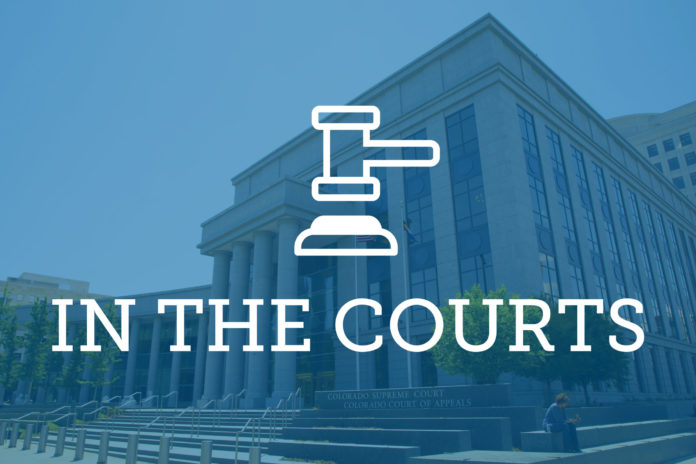
Editor’s Note: Law Week Colorado edits court opinion summaries for style and, when necessary, length.
Casey Ragsdal appealed his convictions for burglary and theft and the associated restitution order. Ragsdal was charged with and convicted of burglary and theft of $50 or more but less than $300 based on allegations that he unlawfully entered the victim’s home and stole the keys to two vehicles and a shed.
Although the level of theft he was charged with and convicted of had an upper bound of $300, the evidence presented at trial and the restitution hearing established that the victim’s losses resulting from the theft exceeded $500. Based on that evidence, the trial court imposed the full amount of the restitution that the government sought.
On appeal, Ragsdal argued that the court erred by imposing restitution in excess of the upper monetary limit of the theft statute he was charged under and convicted of violating. He argued that, by imposing restitution for theft in excess of the upper bound of the theft statute of conviction, the court abused its discretion.
According to the opinion, while it’s true that a court can’t impose restitution based on acquitted or uncharged conduct, the Colorado Court of Appeals rejected Ragsdal’s contention that imposing restitution for theft in excess of the upper monetary bound of the charged and convicted level of offense violated either principle.
Instead, the appeals court found that restitution for theft is governed by the same principles that apply to any other request for restitution: Restitution is imposed in favor of a crime victim for “all out-of-pocket expenses … proximately caused by an offender’s conduct,” even if that conduct would have supported charging a higher-level offense.
Because the appeals court concluded the record supported the conclusion that the theft Ragsdal was charged with and convicted of proximately caused losses commensurate with the restitution imposed by the court, it won’t disturb the court’s restitution order. It also rejected Ragsdal’s challenge to the trial court’s denial of his request for a mistrial.
The appeals court affirmed.
Kyle Wiggs appealed the permanent protection order entered in the dissolution of marriage proceeding between him and his former wife.
Before addressing the merits of Wiggs’s appeal, the Colorado Court of Appeals had to determine for the first time in a published Colorado opinion whether a PPO issued before permanent orders in an ongoing dissolution proceeding is a final, appealable order.
The appeals court found that because of the separate and independent nature of the PPO proceedings, it is. The appeals court then addressed the merits of Wiggs’s argument.
The appeals court affirmed the permanent protection order.
In this dependency and neglect action, A.P.D. appealed the judgment terminating her parent-child legal relationship with E.D.
Section 19-3-308(2)(b)(IV) of the Colorado Revised Statutes requires a department of human services to make available and provide, “as determined necessary and appropriate by individual case plans,” “[f]amily time services for parents with children or youth in out-of-home placement.”
Section 19-3-217, in turn, sets forth the requirements for family time when a child or youth has been removed from their home, including substantive and procedural limitations on a juvenile court’s ability to restrict or suspend family time.
The Colorado Court of Appeals concluded as a matter of first impression that, when a juvenile court appropriately restricts parenting time to a therapeutic setting, a human services department can still satisfy its reasonable efforts obligation by making available and providing appropriate therapeutic family time services — in this case, reintegration therapy — even if those services don’t successfully result in face-to-face contact because of continuing risks to the child’s or youth’s health and safety from such contact.
The appeals court found that the record supported the juvenile court’s findings that reasonable efforts were made, and it rejected A.P.D.’s challenge to the juvenile court’s reasonable efforts findings. It also found that A.P.D.’s ineffective assistance of counsel claims fail.
The appeals court affirmed the judgment terminating A.P.D.’s parental rights.
Kenneth Hill was charged with first-degree criminal trespass. The government appealed the district court’s ruling granting Hill’s motion for judgment of acquittal.
As a matter of first impression, the Colorado Court of Appeals concluded that, if a person secures permission to enter a dwelling by means of a ruse, trickery or deception, the person enters “unlawfully” for purposes of first-degree criminal trespass.
Because the appeals court found that the evidence presented at trial was sufficient for a reasonable juror to conclude that Hill was guilty of the trespass charge beyond a reasonable doubt, it disapproved the district court’s ruling granting Hill’s motion for judgment of acquittal.
Independent Reservoir v. Lichter
In this appeal, the Colorado Court of Appeals was asked to consider the means by which parties subject to punitive sanctions for indirect contempt in a civil case may seek relief for the alleged ineffective assistance of their counsel in the contempt proceedings.
The appeals court concluded that parties subject to punitive sanctions for indirect contempt in a civil case may assert ineffective assistance of counsel in a motion for reconsideration filed under Colorado Rule of Civil Procedure 107(e). This rule allows a court to “reconsider any punitive sanction,” and a showing that counsel rendered constitutionally ineffective assistance would provide a basis for reconsidering such a sanction.
The appeals court concluded the trial court erred by denying the motion by Laura Lichter and her husband James Pollock that raised ineffective assistance of counsel arguments.
Although the court correctly declined to consider Lichter and Pollock’s arguments under Colorado Rule of Criminal Procedure 35(c), it should’ve considered those arguments under CRCP 107(e).
The appeals court reversed the order and remanded the case for the trial court to consider the motion on the merits under CRCP 107(e).

